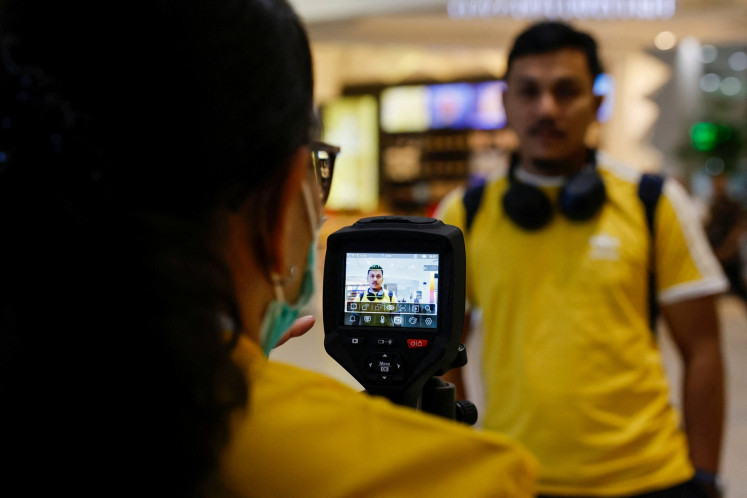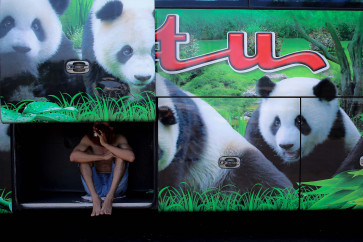Popular Reads
Top Results
Can't find what you're looking for?
View all search resultsPopular Reads
Top Results
Can't find what you're looking for?
View all search resultsNo income and no reunions: Transportation industry workers lament travel ban
Workers who rely on the mudik travel season for an annual income boost are caught between a rock and a hard place - making much less than usual yet unable to go home to be with their families. They tell The Jakarta Post of their frustration.
Change text size
Gift Premium Articles
to Anyone
T
he sound of the takbiran (eve of Idul Fitri celebrations) reverberated as the sun slowly leaned toward the west. Minutes before dusk, the usually-bustling Bungurasih terminal right outside Surabaya was still quiet. Occasionally, ticket brokers could be seen moving from one area to another, but almost all returned empty-handed. Bus drivers were just sitting around, some chatting and some in silence, while others had fallen asleep in the open luggage compartments of their vehicles.
It was one day before Idul Fitri, usually the peak of people traveling to the places they hail from for family reunions, but the government’s decree prohibiting the mudik (exodus) this year means most transportation providers are sitting on their hands. Drivers, brokers and travel agents are left with far less income while also not being able to return home.
Toni, a 35-year-old bus driver who operates out of Bungurasih, said he felt “trapped”. Toni originates from Malang, a city located 45 kilometers south of Surabaya. He could not go home to be with his wife and children, since every corner of the city was heavily guarded. But he’s also low on cash. Only a quarter of the seats on the bus he drives are taken, at a time of year when the vehicle would normally be packed. Toni's income could only cover his food and gas expenses. His eyes turned red as he told the Post that, this year, he couldn't buy new clothes for his children.
"I’ve recently seen how this country is getting more and more unfair to common people like us. The policy, you know, doesn't make sense. If I can’t find any means [for living] for my family, at least don’t make our life more difficult. If we can’t be on the road, at least give us subsidies. Provide a solution, don't just forbid and prohibit the public [from working]," Toni said.
The limitations have left people with mudik-reliant professions in disarray, because most bus and shuttle bus drivers do not work for a monthly salary. Their income depends on the number of passengers. Toni said that his pay this year is 17 percent of the total income he generates.
"Last year was not so bad. [The rules] weren’t so tight. Even until Idul Fitri, I was still there on the road. This year was an absolute downer" Toni said.
Looking on the bright side



















